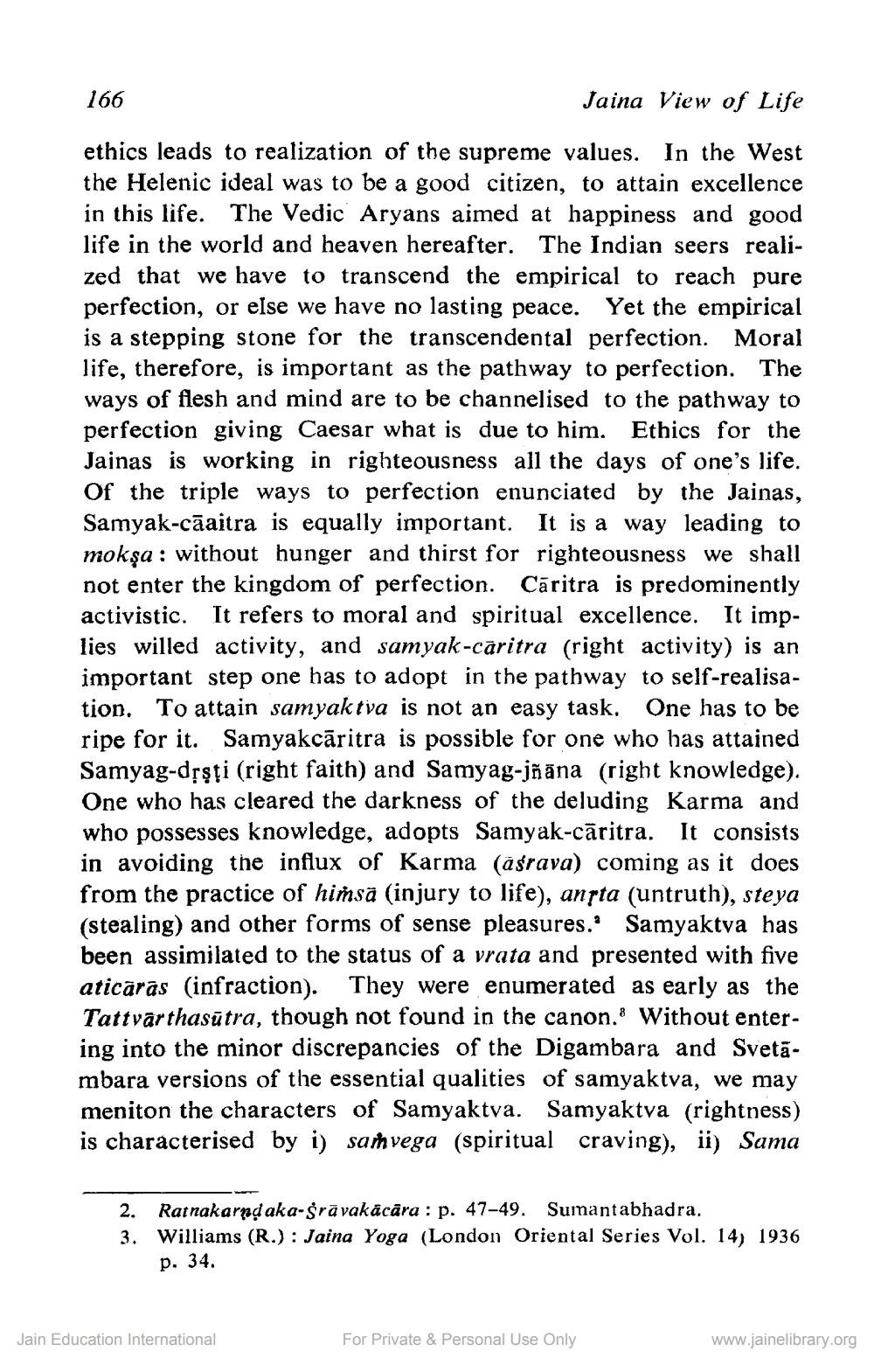________________
166
Jaina View of Life
ethics leads to realization of the supreme values. In the West the Helenic ideal was to be a good citizen, to attain excellence in this life. The Vedic Aryans aimed at happiness and good life in the world and heaven hereafter. The Indian seers realized that we have to transcend the empirical to reach pure perfection, or else we have no lasting peace. Yet the empirical is a stepping stone for the transcendental perfection. Moral life, therefore, is important as the pathway to perfection. The ways of flesh and mind are to be channelised to the pathway to perfection giving Caesar what is due to him. Ethics for the Jainas is working in righteousness all the days of one's life. Of the triple ways to perfection enunciated by the Jainas, Samyak-cāaitra is equally important. It is a way leading to mokşa: without hunger and thirst for righteousness we shall not enter the kingdom of perfection. Cāritra is predominently activistic. It refers to moral and spiritual excellence. It implies willed activity, and samyak-caritra (right activity) is an important step one has to adopt in the pathway to self-realisation. To attain samyak tva is not an easy task. One has to be ripe for it. Samyakcāritra is possible for one who has attained Samyag-dịşti (right faith) and Samyag-jñāna (right knowledge). One who has cleared the darkness of the deluding Karma and who possesses knowledge, adopts Samyak-cāritra. It consists in avoiding the influx of Karma (äsrava) coming as it does from the practice of himsä (injury to life), ansta (untruth), steya (stealing) and other forms of sense pleasures.* Samyaktva has been assimilated to the status of a vrata and presented with five aticāras (infraction). They were enumerated as early as the Tattvārthasūtra, though not found in the canon. Without entering into the minor discrepancies of the Digambara and Svetāmbara versions of the essential qualities of samyaktva, we may meniton the characters of Samyaktva. Samyaktva (rightness) is characterised by i) samvega (spiritual craving), ii) Sama
2. Ratnakarnd aka-grāvakācāra : p. 47-49. Sumantabhadra. 3. Williams (R.): Jaina Yoga (London Oriental Series Vol. 14) 1936
p. 34.
Jain Education International
For Private & Personal Use Only
www.jainelibrary.org




